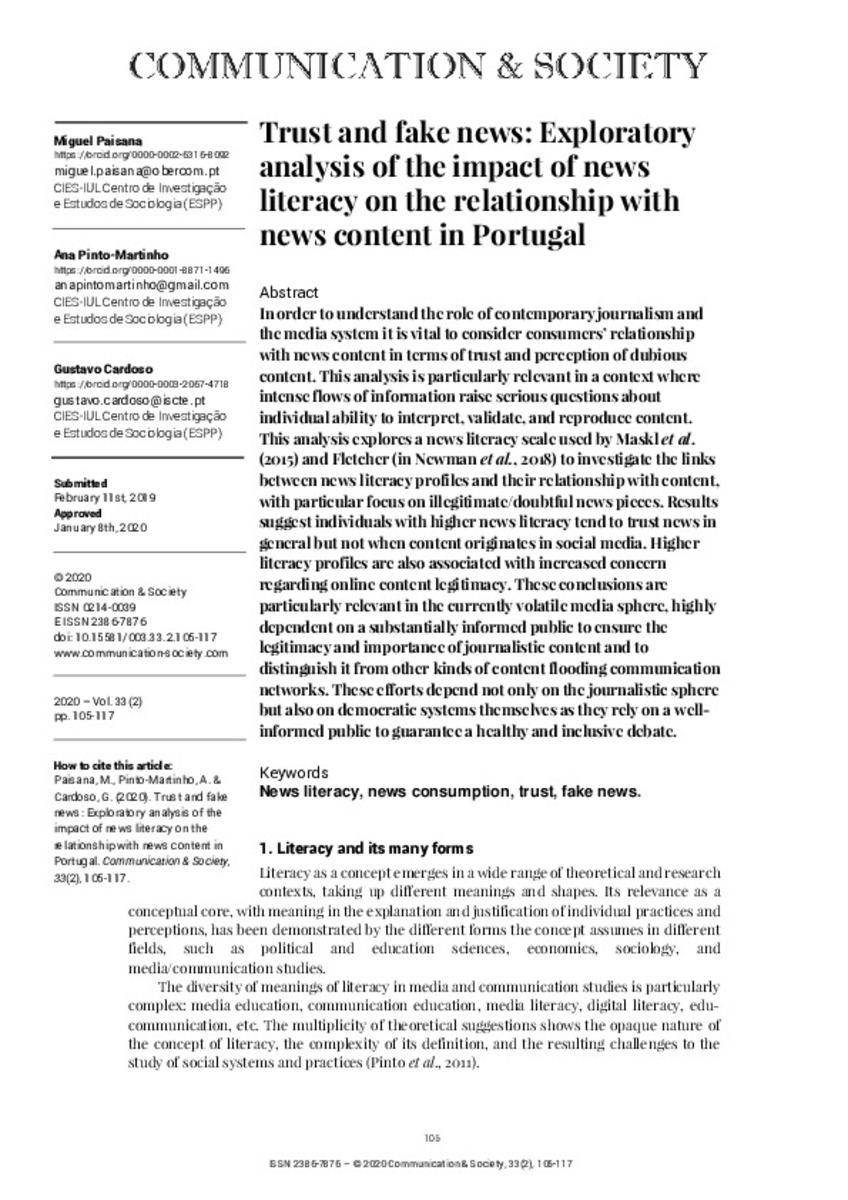Trust and fake news: Exploratory analysis of the impact of news literacy on the relationship with news content in Portugal
Otros títulos :
Trust and fake news: Exploratory analysis of the impact of news literacy on the relationship with news content in Portugal
Palabras clave :
News literacy
News consumption
Trust
Fake News
Fecha de publicación :
2020
Editorial :
Servicio de Publicaciones de la Universidad de Navarra
Cita:
Paisana, M. (Miguel); Pinto-Martinho, A. (Ana); Cardoso, G. (Gustavo). "Trust and fake news: Exploratory analysis of the impact of news literacy on the relationship with news content in Portugal". Communication & Society. 33 (2), 2020, 105 - 117
Aparece en las colecciones:
Estadísticas e impacto
0 citas en

Los ítems de Dadun están protegidos por copyright, con todos los derechos reservados, a menos que se indique lo contrario.








